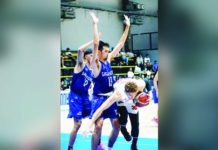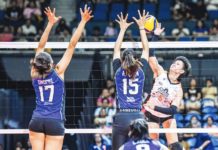
[av_one_full first min_height=” vertical_alignment=” space=” custom_margin=” margin=’0px’ padding=’0px’ border=” border_color=” radius=’0px’ background_color=” src=” background_position=’top left’ background_repeat=’no-repeat’ animation=”]
[av_heading heading=’Third window’ tag=’h3′ style=’blockquote modern-quote’ size=’30’ subheading_active=’subheading_below’ subheading_size=’18’ padding=’10’ color=” custom_font=” av-medium-font-size-title=” av-small-font-size-title=” av-mini-font-size-title=” av-medium-font-size=” av-small-font-size=” av-mini-font-size=” admin_preview_bg=”]
BOBBY MOTUS
[/av_heading]
[av_textblock size=” font_color=” color=” av-medium-font-size=” av-small-font-size=” av-mini-font-size=” admin_preview_bg=”]
Monday, March 5, 2018
[/av_textblock]
[av_textblock size=’18’ font_color=” color=” av-medium-font-size=” av-small-font-size=” av-mini-font-size=” admin_preview_bg=”]
EIGHTY national basketball teams are playing in the 2019 FIBA World Cup Qualifiers. They are divided into four regions (Africa, Americas, Europe, and Asia-Oceania) that will be playing in six windows of nine days each, with teams engaging in two games per window in a home-and-away format. The Philippines is grouped together with Australia, Chinese Taipei and Japan.
With a 3-1 record, the Philippines, together with the Aussies, bagged the first two spots for the second round. The third window will determine the third team on the group. We will visit and play Chinese Taipei on June 29 while Australia battles the Japanese. Gilas Pilipinas will then have a rematch with Australia on July 2 at the Philippine Arena in Bulacan as Japan goes against the Taiwanese.
After this window, the three teams will advance. If we lose to Chinese Taipei and Japan loses to Australia, the Taiwanese automatically advance. If we win and Japan somehow upsets the Australians, the Taiwanese and the Japanese will have a knockout match.
The three teams then move on to the second round, the fourth window composed of two groups of six teams each, with games scheduled in September, November and February 2019 together with Asian powerhouse Iran, Kazakhstan, and either Iraq or Qatar. The win-loss records will be carried over to this round. Teams will still be playing in a home-and-away format. The top three finishers from each group plus the best fourth team from either group – a total of seven teams – qualify for the 2019 FIBA China World Cup.
From the 2019 World Cup, eight countries including host Japan will qualify for the 2020 Tokyo Olympics. Two teams from the Americas, another two from Europe, and one each from Africa, Asia and Oceania will go to Tokyo. To complete to 12-nation basketball event, an Olympic qualifier will be made similar to the one held in Manila in July 2016.
I missed the Gilas game against the Boomers due to some circumstances but I made sure to catch the game versus Japan several days ago. In that game, we had double-digit runs, but as soon as the coaching staff tweaked the combination, the Japanese made a run of their own. In the final minutes, heads-up plays of our veterans saved the game.
A personal observation: the national team is backcourt-heavy, and when we say backcourt, our guards stand no taller than 6-3. In international basketball competitions, height is always might, no matter the argument that guards can outrun the taller and heftier opposition. There will always be adjustments and the bigger guys will always pulverize the undersized in a half-court set. And compared to the big men of years past, today’s frontcourt players have become nimble and mobile.
We’re on to the third window, a much harder and important battle, and the least we can do is to level-up with the taller Australians. I would rather prefer a three-guard rotation to man the point (Jayson Castro, Terence Romeo and Kiefer Ravena) as we have a good number of wings who can be effective at the 2 spot (Calvin Abueva, Matthew Wright, Gabe Norwood, and Carl Bryan Cruz).
I would love to have Greg Slaughter alternating with June Mar Fajardo in the middle and Andre Blatche, Japeth Aguilar, Troy Rosario, Raymond Almazan, and Mac Belo as stretch fours.
This is wishful thinking because head coach Chot Reyes prefers small ball and outside shooting where it can only be effective in Southeast Asia. In the new FIBA format, we’re going up against the giants of the Asia-Oceania region. How can we make a decent showing if we insist on a guard-laden lineup?
Despite the almost hometown crowd that watched the game at Melbourne, the Boomers accelerated in the last half of the game and vaporized whatever ideas we had of an upset. And as per reports, there never were any perimeter shooting to speak of.
If we insist on this small lineup, then we need to have an intact crew during practices. Of late, the PBA had agreed to adjust their schedule to accommodate the national team. Because we really love this game suited for giants, we might as well do everything to make things a bit easier for our boys. Maybe we could just one-up on our performance the last time around. And don’t forget to practice shooting./PN
[/av_textblock]
[/av_one_full]



